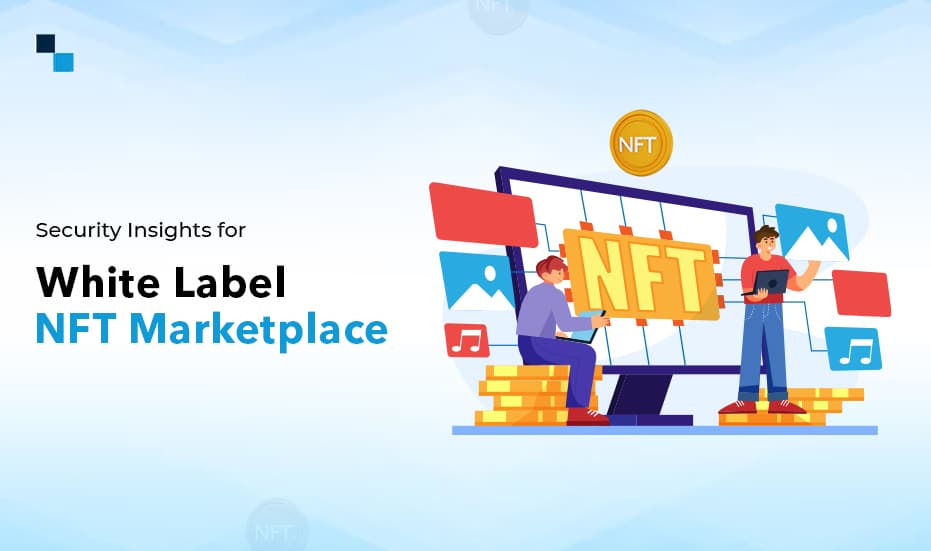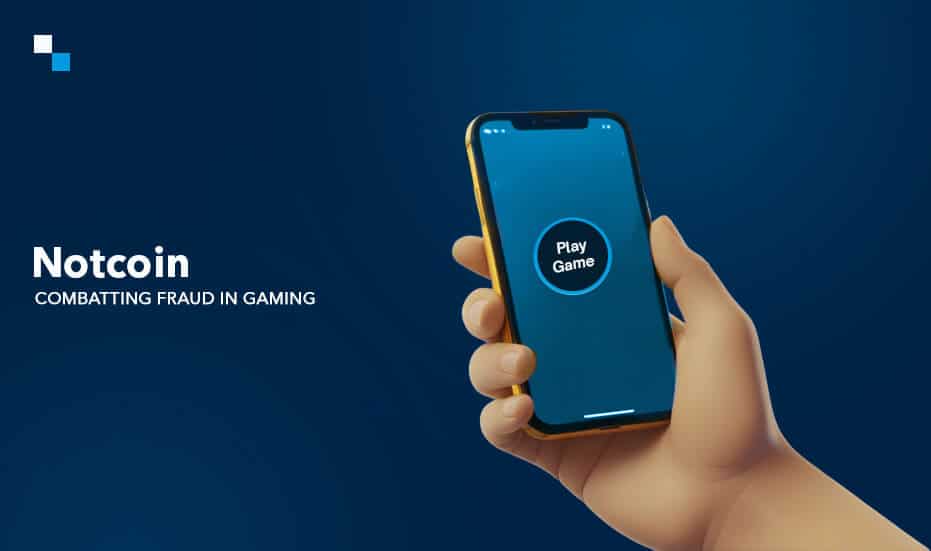
Top Real Estate Tokenization Platforms in 2023
November 3, 2023
Stablecoins for the Metaverse: Their Role and how to Build them
November 7, 2023In recent years, Non-Fungible Tokens (NFTs) have gained significant popularity. NFTs represent ownership of unique digital items, such as artwork, music, collectibles, and more. With the rise of NFTs, white label NFT marketplace services have become an attractive option for businesses looking to enter this space. However, it is crucial to keep a keen eye on security considerations when developing these platforms.
- Blockchain Security: The Foundation of NFTs
The core technology behind NFTs is blockchain, which is a decentralized and immutable ledger. The security of the underlying blockchain is paramount because it directly impacts the security of the NFTs traded on the marketplace. Therefore, a white label NFT marketplace development company must choose a reliable and secure blockchain network to build the NFT marketplace. Networks like Ethereum, Binance Smart Chain, and others have been popular choices, but they come with their own security challenges. - Smart Contract Vulnerabilities
Smart contracts are self-executing contracts with the terms of the agreement between buyer and seller directly written into code. They enable NFT creation, transfer, and ownership. However, these smart contracts can be vulnerable to exploitation if not developed and audited properly. Common vulnerabilities include reentrancy attacks, integer overflows, and malicious delegate calls. It is crucial to thoroughly test and audit the smart contracts to identify and fix any potential security loopholes. - User Authentication and Authorization
User accounts are a significant part of NFT marketplaces. Security begins with proper user authentication and authorization. Companies offering white label NFT marketplace services should implement Multi-factor authentication (MFA) to enable only authorized user access. It is also essential to establish strict role-based access control to limit who can perform administrative tasks on the platform. - Secure Wallet Management
NFTs are stored in digital wallets, and users need to connect their wallets to the marketplace to trade assets. It is essential to guide users on how to secure their wallets and enforce strong password policies. The marketplace itself must never store sensitive wallet information and should use secure authentication protocols to ensure wallet connections are safe. - Data Encryption
The company you choose to build white label NFT marketplace should have solutions in place to encrypt data, including user information and NFT metadata, to protect it from unauthorized access. Data encryption at rest and during transmission should be implemented to safeguard sensitive information. - DDoS Protection
Distributed Denial of Service (DDoS) attacks can disrupt the functioning of a white label NFT marketplace. This is when it is essential to implement DDoS protection and mitigation strategies, such as web application firewalls, as they can help maintain a smooth user experience even during attacks.
Creating your own White-Label NFT Marketplace
Schedule Free Demo- Compliance with Legal and Regulatory Requirements
Companies offering white label NFT marketplace services need to comply with legal and regulatory compliance. This includes adhering to intellectual property rights, copyright laws, and anti-money laundering (AML) regulations. Failing to do so can lead to legal repercussions and financial penalties. - Code Audits and Penetration Testing
Regular code audits and penetration testing are essential to identify vulnerabilities in the platform. Vulnerability scanning tools and the expertise of ethical hackers can be employed to detect and fix security issues before malicious actors exploit them.
- Incident Response Plan
A well-defined incident response plan can be extremely helpful in case of a security breach. This plan should outline the steps to be taken in case of a data breach, including informing affected users, regulatory authorities, and taking necessary measures to contain and resolve the incident. - Educate Users
Security is not just about the platform but also the users. Educating users about best practices in NFT security, recognizing phishing attempts, and using strong, unique passwords can significantly reduce the risk of security incidents. - Regular Updates and Patch Management
Despite integrating market-leading security features when you build white label NFT marketplace, vulnerabilities may be discovered over time. Regularly updating and patching the platform is crucial to address known vulnerabilities and protect against emerging threats. - Cold Storage for High-Value NFTs
For NFTs of substantial value, consider storing them in cold storage wallets, which are not connected to the internet. This can protect them from online attacks and theft. - Backup and Recovery Procedures
Implementing robust backup and recovery procedures ensures that data can be restored in case of accidental data loss or a catastrophic event. A white label NFT marketplace development company should regularly test these procedures to ensure their effectiveness.
- Third-Party Integrations
Be cautious when integrating third-party services into your white label NFT marketplace services. Each integration introduces potential security risks, so it is vital to assess the security measures of third-party services and conduct due diligence before integration. - Security Monitoring
Implementing continuous security monitoring tools and practices can help detect and respond to security threats in real-time. Anomaly detection systems can alert administrators to suspicious activities on the platform.
In conclusion, the security of white label NFT marketplaces is of paramount importance. Failing to address security considerations can lead to financial loss, loss of trust from users, and legal issues. Therefore, it is essential to prioritize security throughout the development process, continually update and patch the platform, and educate both users and administrators on best security practices.
Why Antier to Build White Label NFT Marketplace?
At Antier, we harness our blockchain experience, expertise, and domain knowledge to build world-class NFT marketplaces optimized for enterprise-grade security and performance. Whether you want to build white label NFT marketplace or a customized marketplace from the ground up, we offer end-to-end, mission-driven solutions to deliver a platform that helps you penetrate the market with an impact.



